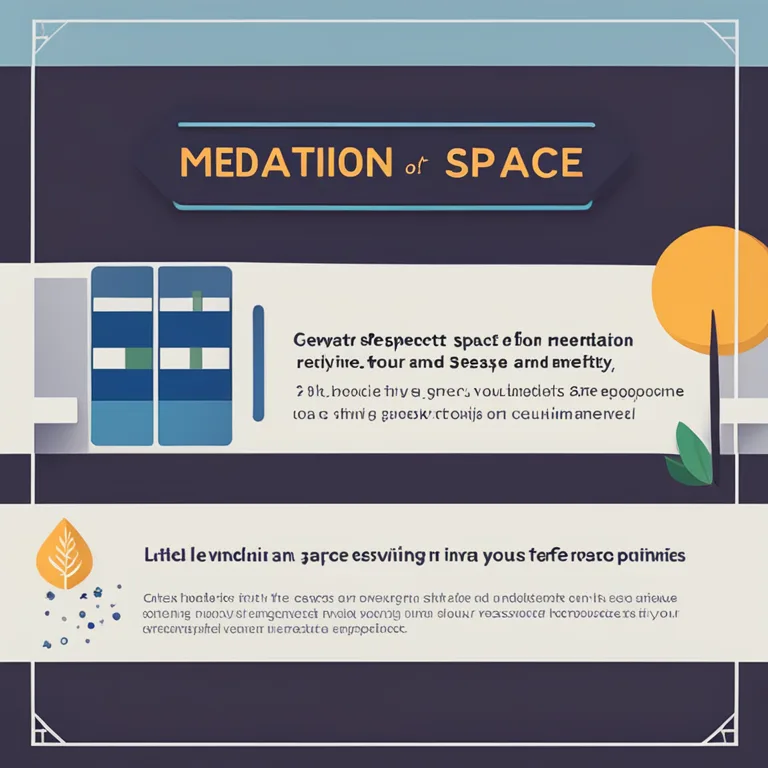
Healing through Mindfulness: Meditation for Trauma
Discover the therapeutic potential of mindfulness meditation in addressing and healing from trauma, fostering emotional and psychological resilience.
article by Hina Kurosawa
Introduction to Mindfulness and Trauma
Going through traumatic events can leave deep psychological scars, affecting one's mental and emotional well-being long after the events have passed. The practice of mindfulness meditation has been gaining traction in the field of trauma recovery, providing individuals with the tools to engage in their healing process actively. This article delves into how mindfulness meditation can aid those struggling with trauma, promoting a path toward recovery and resilience.

The Mechanism of Mindfulness for Healing
Mindfulness meditation operates on the principle of cultivating a non-judgmental, present-moment awareness. For trauma survivors, this can translate into a growing ability to observe their thoughts and feelings without becoming overwhelmed by them. Engaging in regular practice supports the development of a mental space where traumatic memories can be processed without eliciting the full force of their originally associated distress.

Starting Mindfulness Meditation Practices
Beginners often find it beneficial to start with guided meditations, which provide gentle instruction and can help ease the mind into a state of awareness. Gradually, as one becomes more comfortable with the practice, independent sessions can be interspersed. It's important that individuals recovering from trauma approach mindfulness at a pace that feels safe and supportive for them.

Creating a Safe Space for Meditation
A critical aspect of utilizing mindfulness for trauma is the creation of a safe physical and emotional environment. This can involve personalizing a meditation space with comforting items or choosing a particular time of day when interruptions are less likely. Feeling secure is a prerequisite for letting one's guard down and allowing healing to begin.
The Role of a Mindfulness Mentor
Guidance from a skilled mindfulness mentor or therapist trained in trauma care can be immensely beneficial. These professionals can provide personalized strategies and support, helping to navigate any intense emotions that might arise during the practice. They serve as compassionate witnesses to the journey of healing.
Integration into Daily Life
Mindfulness is not limited to formal meditation sessions but can be integrated into daily life. Simple practices, such as mindful breathing during stressful moments or mindful walking, can extend the benefits throughout the day, providing continuous support for trauma recovery.
Scientific Evidence Supporting Mindfulness
Research studies have increasingly provided evidence that mindfulness meditation can alter the brain's response to stress and improve emotional regulation. This has also been echoed in the growing acceptance of mindfulness-based interventions in contemporary psychological therapy for trauma, such as Mindfulness-Based Stress Reduction (MBSR) and Mindfulness-Based Cognitive Therapy (MBCT).
Conclusion
Mindfulness meditation offers a promising avenue for trauma survivors seeking to reclaim their lives from the shadows of past experiences. By fostering a sense of safety, gentle self-awareness, and acceptance, individuals can begin to rewrite their relationship with traumatic memories and pave the way for a more peaceful and resilient future.
Published: 1/8/2024
Modified: 1/8/2024
More predictions
Come back here soon to learn more about yourself and your future


Meditation's Impact on the Limbic System
Explore how meditation can positively influence your emotional and neurological well-being through its effects on the limbic system.


The Harmonious Trio: Meditation, Mindfulness & Breathwork
Embark on a journey to inner peace with our guide on integrating meditation, mindfulness, and breathwork into your daily life.


Calming the Student Mind: A Guide to Mindfulness Meditation
Discover how mindfulness meditation can benefit high school students, offering a practical solution for stress management and enhanced focus in the academic environment.